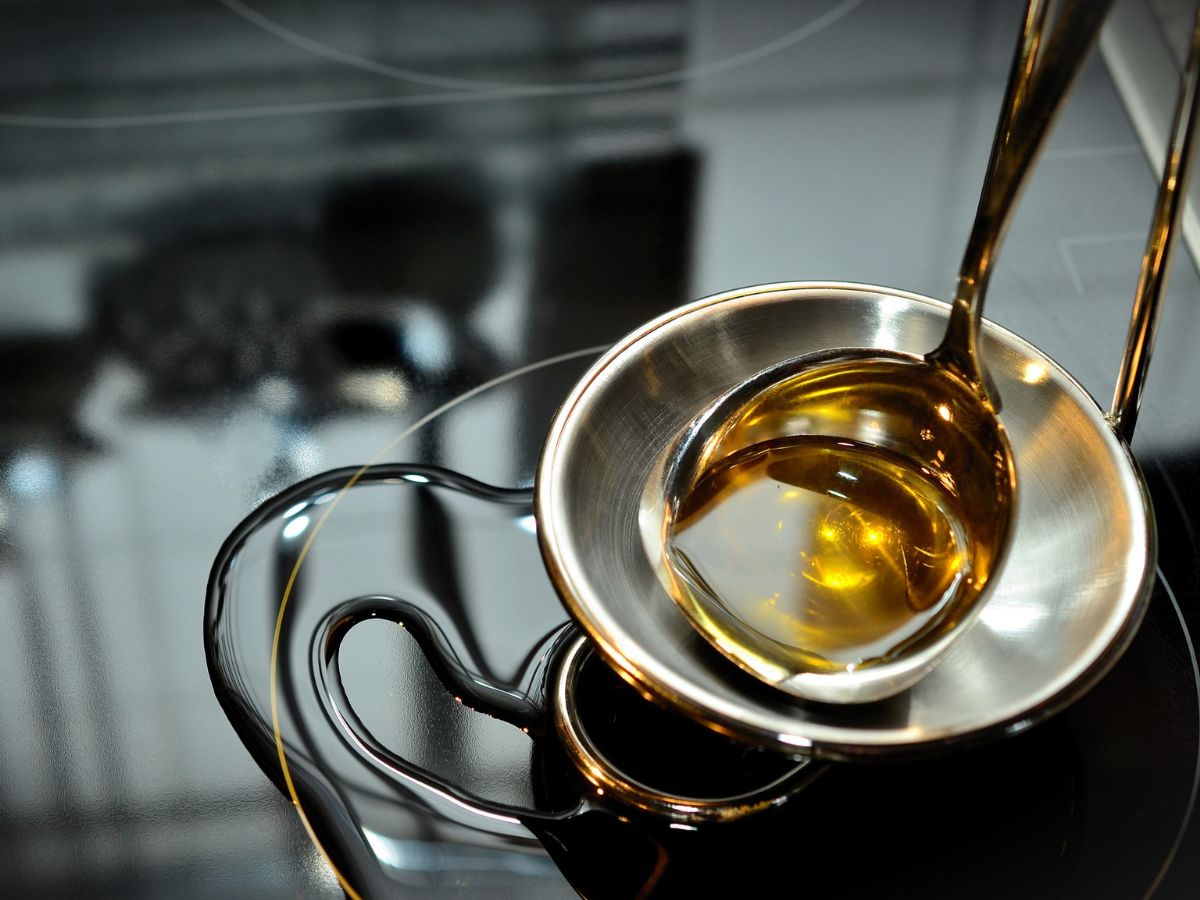Oil for cooking is a necessary kitchen staple. They’re essential for applications ranging from homemade dressings to baked desserts. But not all oils are created equal and with so many options available, picking the correct or healthy one can feel downright confusing.
This article looks at what makes a cooking oil healthy in the first instance and the best oils to use.
A cooking oil that is healthy should have the following characteristics:
Its fatty acid
There will be variations in the proportions of saturated fatty acids, omega-3 and omega-6 PUFAs, and monounsaturated fatty acids (MUFAs) in all cooking oils (SFAs).
The amount of fat that makes up an oil determines how stable and nutritious it is when heated.
According to research1, MUFA-rich oils are the safest fats to use when preparing food. They may reduce inflammation, enhance blood lipids like cholesterol, and support cardiovascular health. Numerous studies have shown that switching from SFAs to MUFAs in the diet is advantageous.
They are also more heat-stable than PUFAs. They are therefore less likely to breakdown into harmful lipid oxidation byproducts when heated. Oleic acid 3, or omega-9, is the main MUFA found in cooking oils.
PUFA-rich oils come in a variety of forms. Both omega-3 and omega-6 PUFAs are needed since we cannot produce them and must obtain them through nutrition. However, because they are highly unsaturated, they are less stable. They are therefore more likely to degrade when exposed to light, heat, and oxygen.
Cooking with these more delicate oils might encourage the healthy production of lipid oxidation byproducts4 including aldehydes. This may encourage inflammation and have long-term detrimental consequences on one’s health.
The majority of us consume enough amounts of omega-6 PUFAs because they are common in packaged and whole foods. Therefore, it makes sense to give other fats (such as omega-3 PUFAs and MUFAs) priority for overall nutritional balance. Omega-3-rich oils, including flaxseed oil, are best used in unheated applications. This will maintain their integrity and help you benefit from their variety of benefits.
SFA oils
Even though SFA-rich oils are among the most heat-stable, you should still use them with caution. Especially if you’re worried about cardiovascular disease because they may raise LDL cholesterol.
Some high-saturated fat oils like coconut oil offer some distinctive and compelling health benefits. However many experiments have demonstrated that substituting animal fats and saturated fats with unsaturated fats is advantageous for health.
But keep in mind that if you consume a diet high in whole foods and plants, you may have more room in your diet for SFA-rich oils.
The method of extraction and refining
As a general rule the less refined a cooking oil is the more healthy it is.
Naturally refined or unrefined oils contain more nutrients, nutritious phytochemicals and taste better. Olives, avocados, seeds, and nuts are crushed to release oils. These are are then gently filtered to remove particles to create an unrefined oil. Naturally refined oils don’t undergo high heat or chemical treatment. Instead, they are more thoroughly filtered. If you decide to use one of these, go for one that has more MUFAs. These are more resistant to oxidation than PUFAs.
Their smoke point
Lastly, think about an oil’s smoke point. Oils with a low smoke point are typically less preferable to cook with because they’ll burn more easily.
Acrolein is a substance linked to a number of chronic disorders. It is formed when heat is applied above the smoke point. Just bear in mind that while many highly refined oils have high smoke points, this does not necessarily equate to ahealthy” decision.
Not all of your cooking calls for a high smoke point. You’d want an oil with a high smoke smoke point for frying. However an oil with a moderate smoke point and a stable fatty acid profile can be used for a variety of cooking tasks, including sautéing, baking, and moderate-heat roasting. Examples of such oils include EVOO or avocado oil.
A standard supermarket EVOO can be used at temperatures up to 400°F to 425°F. When you’re cooking, the oils are buffered by the food and don’t actually reach that degree. Just be careful not to heat those expensive, unfiltered, artisanal oils that appear hazy. A larger solids content dramatically decreases the smoke point.
Here are the top three healthiest cooking oils you can buy.
Olive oil extra virgin
Due to its little processing, extra-virgin olive oil has a high concentration of minerals. These include phytosterols, vitamin E and at least 30 phenolic compounds. It is also rich in oleic acid, a kind of MUFA.
According to studies olive oil reduces LDL cholesterol while increasing HDL cholesterol which is good for the heart. It also reduces inflammation and may even support gut health by encouraging healthy microbial biodiversity and balance.
Avocado oil
Like olive oil, avocado oil is extracted from the avocado fruit’s flesh. It is also rich in oxidatively stable MUFAs and a range of phytochemicals.
Despite being exposed to oxidative stress, oleic acid has been demonstrated to support the maintenance of healthy brain tissue. It may also function as an anti-inflammatory in the brain.
Avocado oil-rich diets have also been linked to lower levels of triglycerides, LDL cholesterol, and total cholesterol. It is a particularly strong source of carotenoids such the antioxidant lutein. This may be beneficial against cardiovascular problems and cancer.
Almond oil
Almond oil is another excellent MUFA-rich oil that works well in cooking. It has a comparable fatty acid profile to EVOO and also has beneficial effects for skin.
Due to its beneficial unsaturated fats, studies suggest cooking with almond oil may support healthy cholesterol levels. Additionally, a tablespoon of almond oil contains about one-third of the daily recommended amount of vitamin E19. This vitamin helps shield the body from free radical damage that can hasten skin aging and cause disease. Almond oil can promote skin barrier function, increase hydration, and reduce irritation when applied topically.

